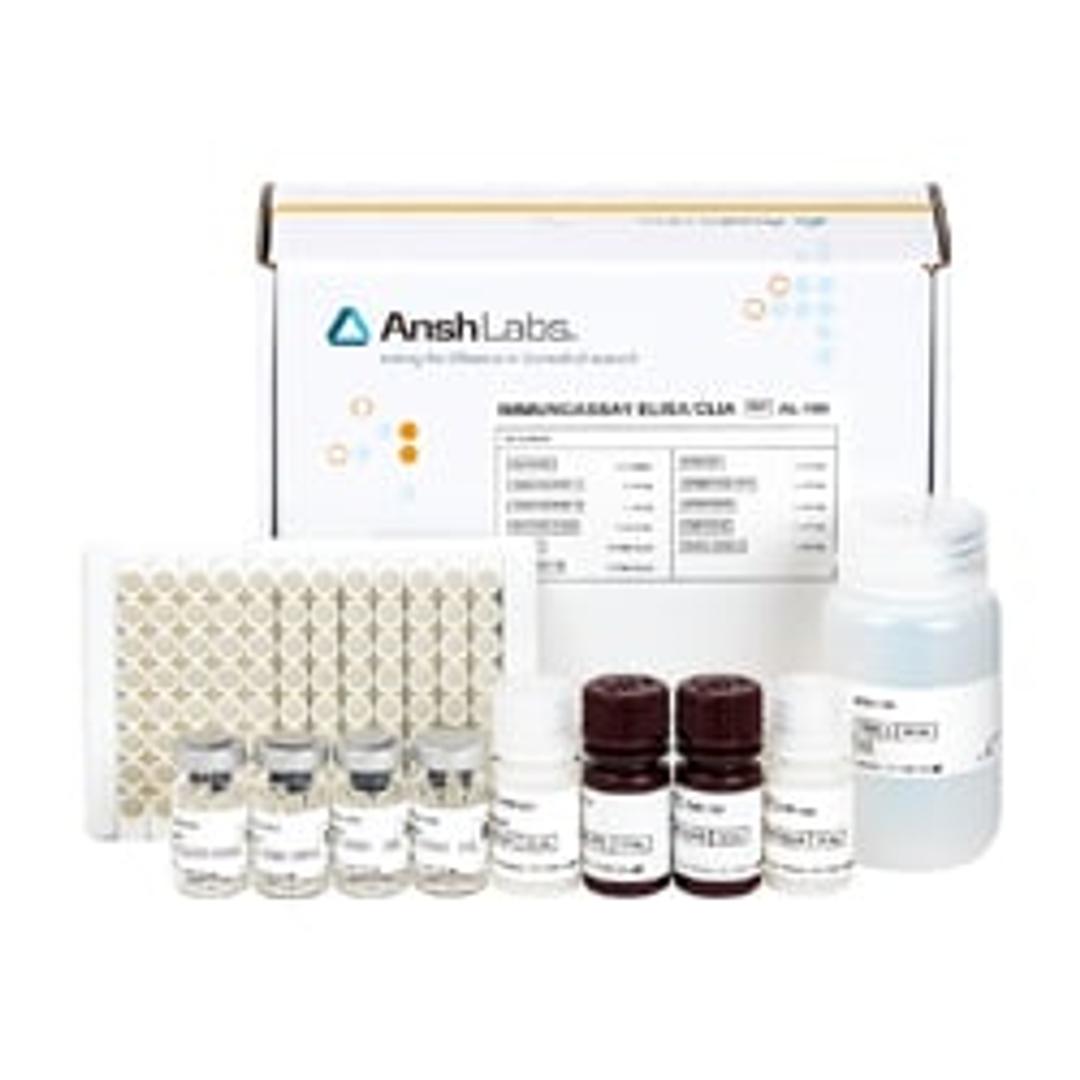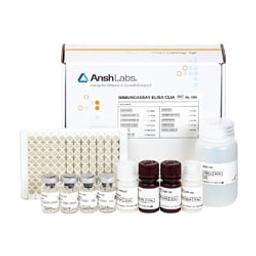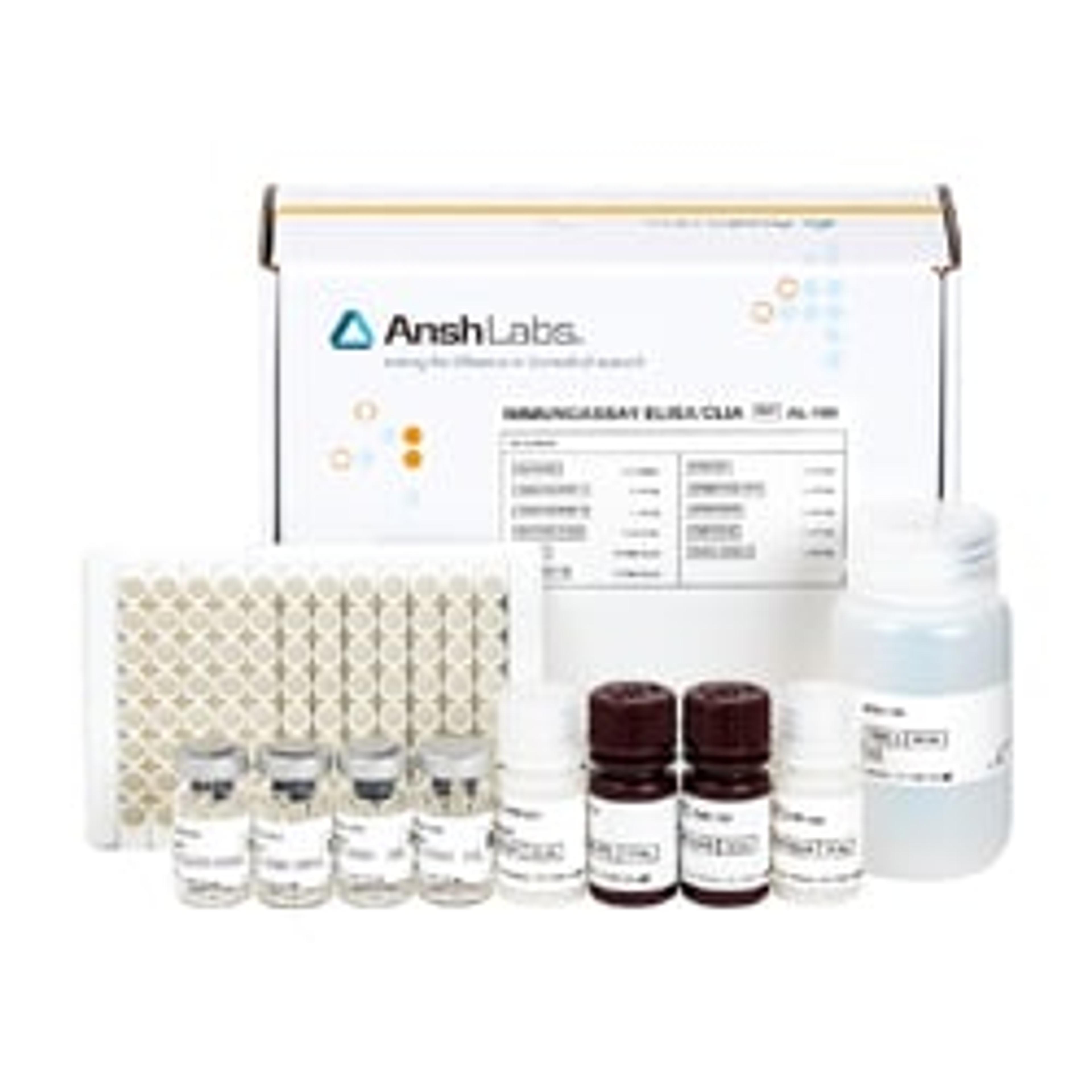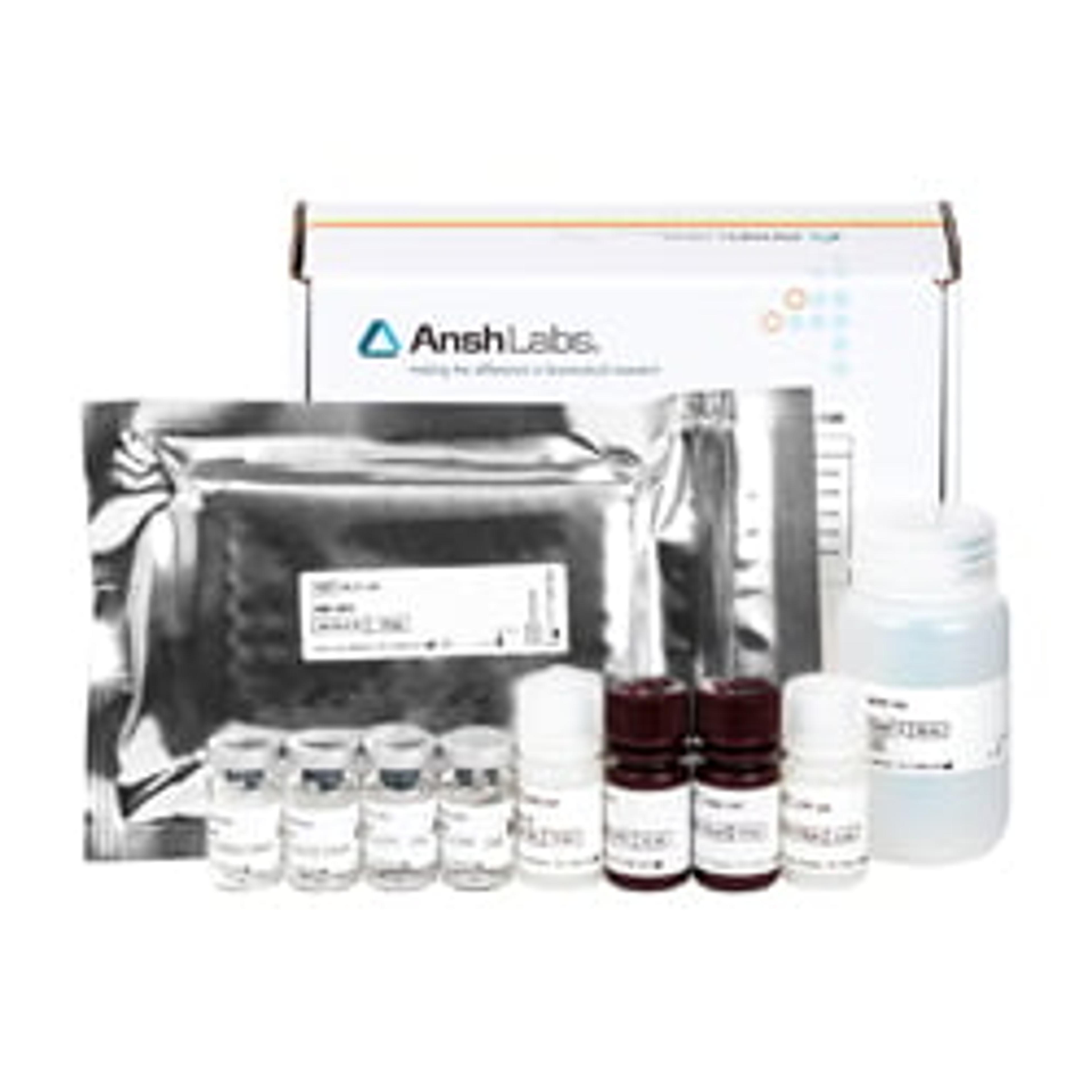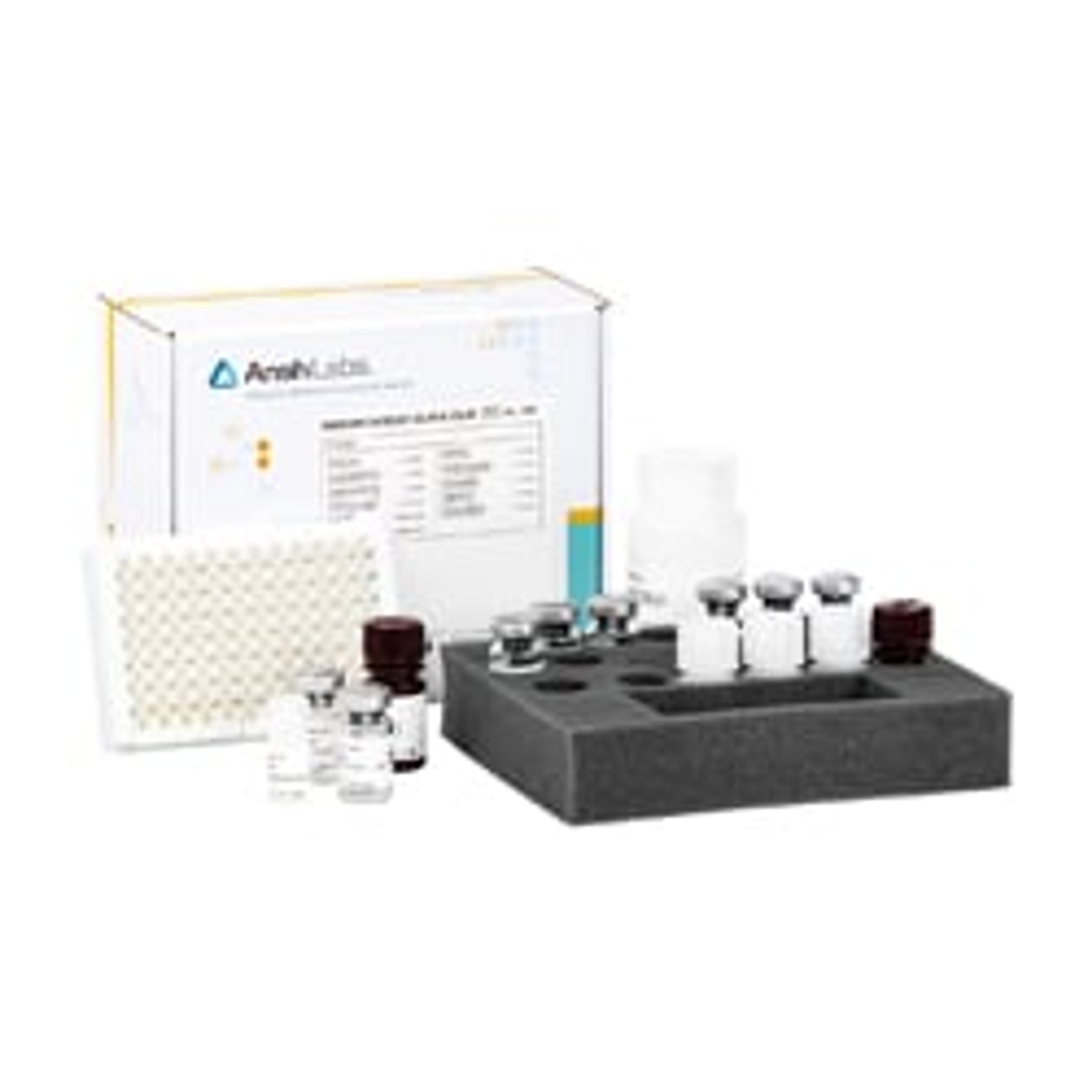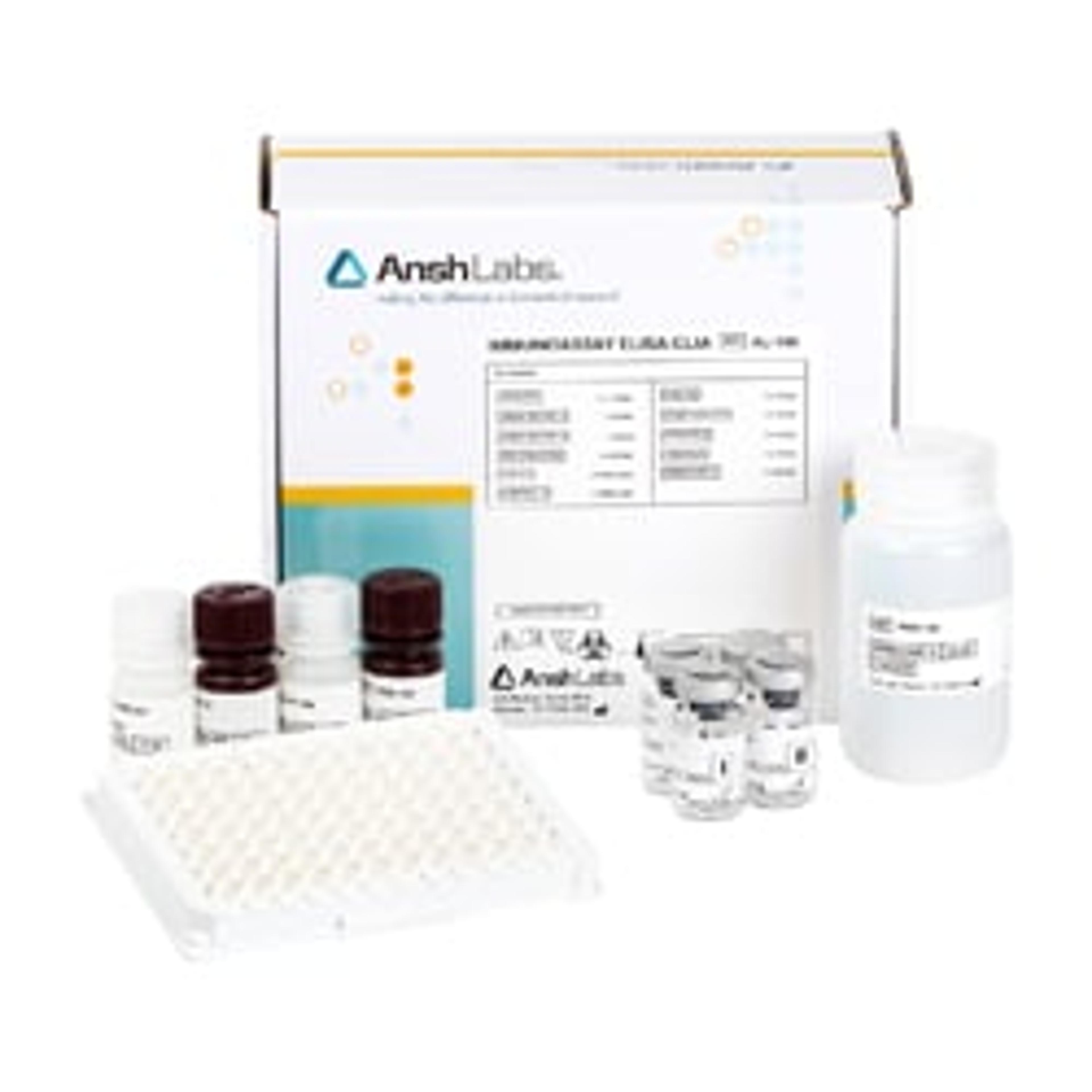Intact IGFBP-4 ELISA
Several studies have shown that concentration of PAPP-A in blood of patients with acute coronary syndrome (ACS) is higher than in blood of patients with stable coronary artery disease or control subjects. PAPP-A has been suggested as a marker of cardiovascular diseases associated with coronary artery blood clotting, such as unstable angina and myocardial infarction (MI).
Several studies have shown that concentration of PAPP-A in blood of patients with acute coronary syndrome (ACS) is higher than in blood of patients with stable coronary artery disease or control subjects. PAPP-A has been suggested as a marker of cardiovascular diseases associated with coronary artery blood clotting, such as unstable angina and myocardial infarction (MI). The ratio of Total to Intact IGFBP-4 concentration measured in individual subjects over time will help normalize the IGFBP-4 variability between subjects and also increase the detection rate of increased PAPP-A activity in myocardial infarction subjects.
The Ansh Labs' Intact IGFBP-4 ELISA is a quantitative three-step sandwich immunoassay. The ratio of Total to Intact IGFBP-4 concentration measured in individual subjects will help normalizes the variability between subjects and also increase the detection rate of increased PAPP-A activity in myocardial infarction subjects. Useful in research related to cancer studies, hypertension, diabetes, cardiomyopathy, osteoarthritis, aging and longevity studies, and growth hormone deficiency.
- The monoclonal antibody pair used detects intact IGFBP-4
- The capture antibody binds to the N terminal of the molecule whereas detection antibody binds to C terminal
- The assay does not cross-react to IGF-I, rat IGF-I, IGFBP-3, IGFBP-3/IGF-1 complex and IGFBP-2 at 1000 ng/ml concentration
- The assay also detects bovine and equine
- Analytical range of 7 – 1200 ng/mL
- Simple procedure with no sample preparation
- Total 2 hr incubation at RT. Sensitive to 1.62 ng/mL
Research Use Only within the United States.

